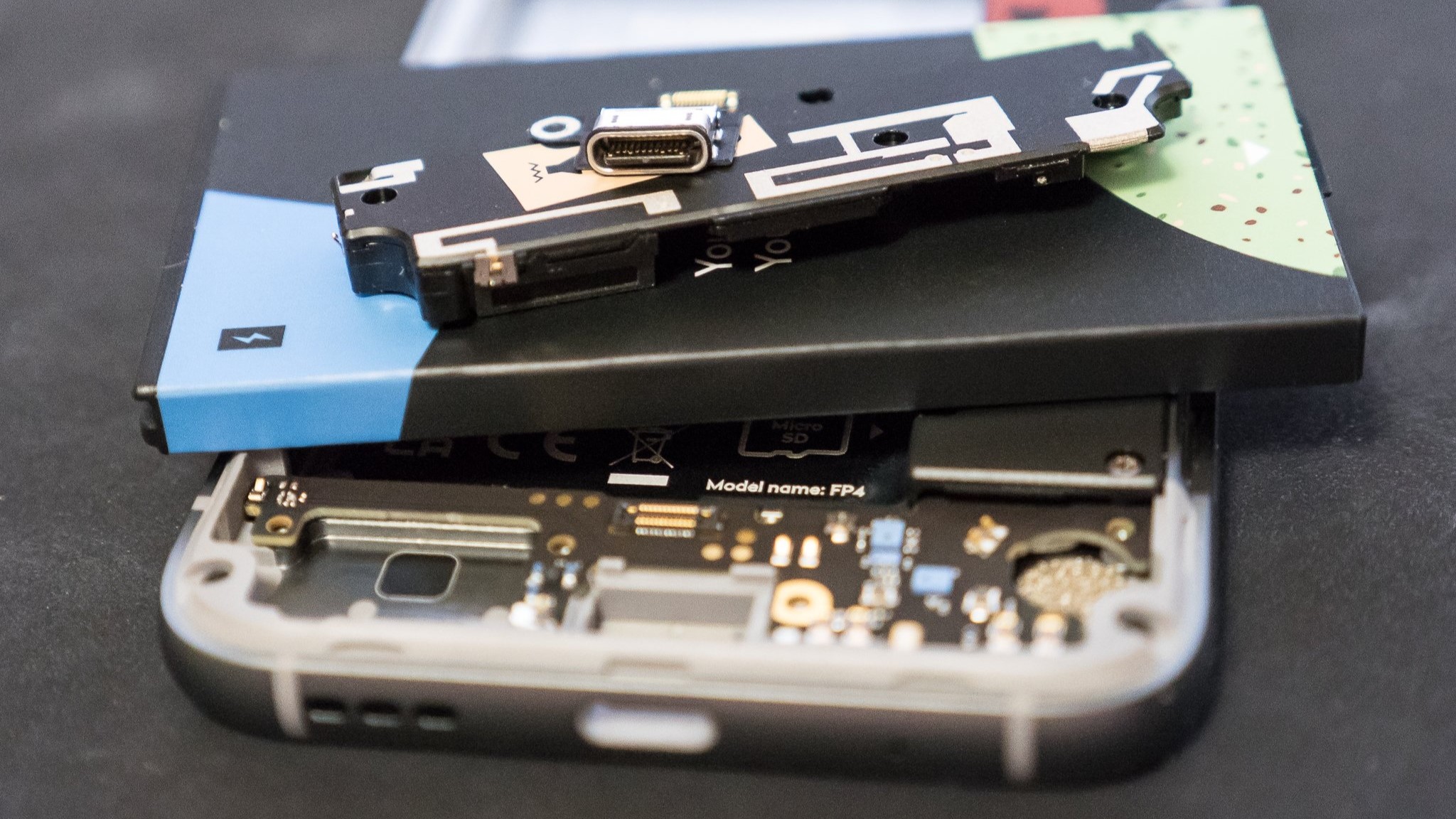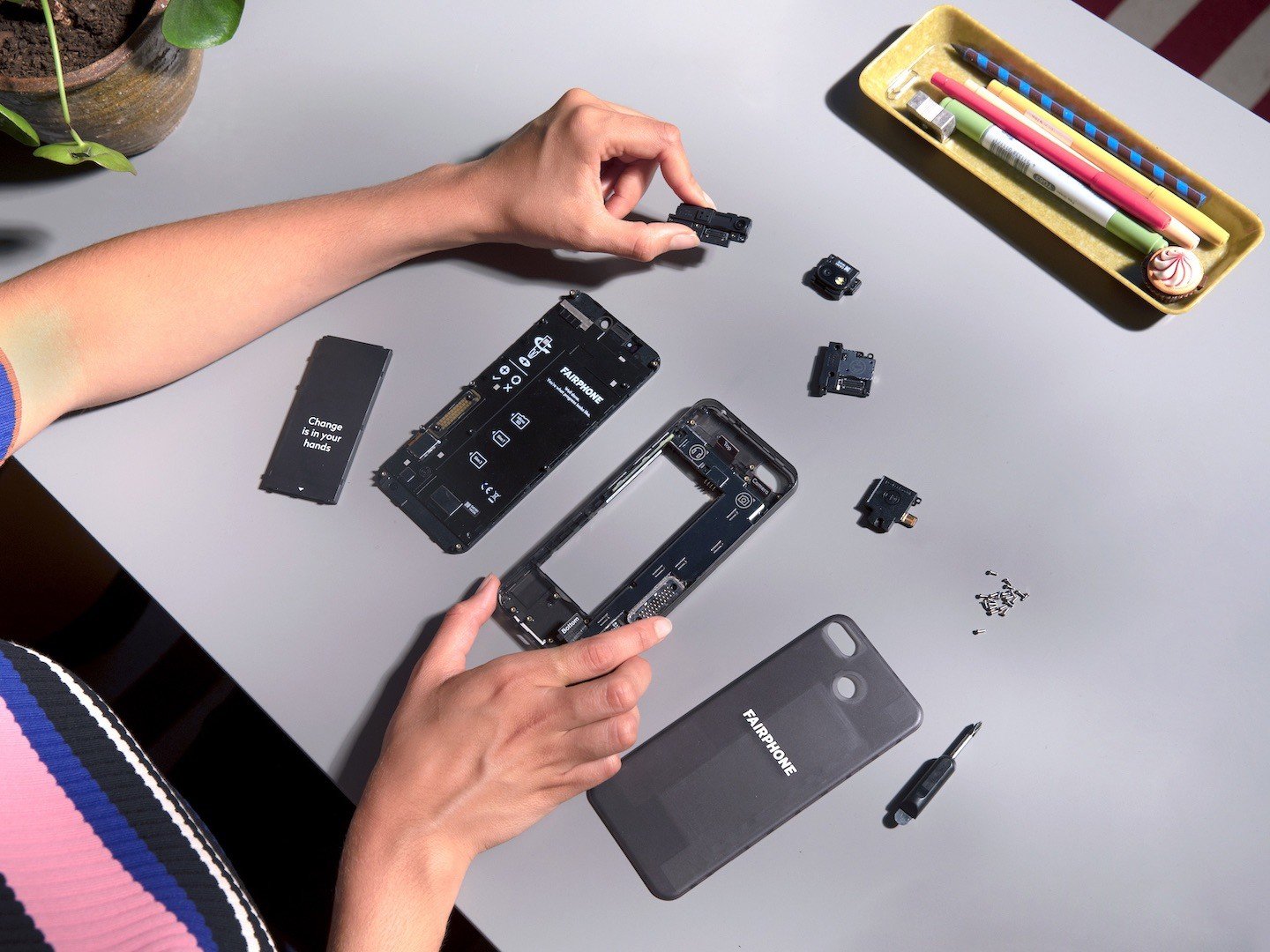
Sustainability is a hot-button topic and you hear about it every time a tech executive speaks. For one small Dutch company it's more than a buzzword.
I'm talking about Fairphone; the company that makes phones designed to last a full five years or more that are made out of sustainable materials using fair practices. Big-name companies like Apple and Samsung should be embarrassed at their inability or unwillingness to be as fair to consumers, workers, and the planet as a whole.
For many consumers, the first time they heard of Fairphone was when the company does something extraordinary and newsworthy, like supporting phones sold in 2019 with software and security updates long after the companies making the components have stopped. the kicker is that they aren't finished and that the 2019 phone will be supported until 2026.
As we always say, the most sustainable phone is the one you already own
Agnes Crepet, Fairphone
Fairphone isn't perfect. As an example, Apple uses primarily recycled aluminum in the iPhone and Google uses 100% recycled aluminum in the Pixel while Fairphone uses ethically mined and smelted aluminum in the Fairphone 4. But we know things like this because the company is also transparent about its shortcomings, which it offsets by physically recycling one smartphone for every phone it sells.
Being sustainable is more than being eco-friendly though. Being fair to workers is important, and Fairphone provides a living wage for the people building its products — in 2020 workers in China received an extra four-months salary as a yearly bonus o make sure they were being paid enough. It also uses fair-trade materials, which means it pays more for things like gold and tungsten from Rwanda instead of buying gold mined under poor conditions elsewhere. Because Fairphone doesn't have the resources to use 100% recycled materials, it works hard to ensure the supply chain for mined materials it has to buy is conflict-free and workers are fairly compensated.

Being fair to consumers is maybe the most important part of being sustainable. Samsung may use recycled fishing nets in its Galaxy S phones, but when one breaks it's almost certain to end up as part of a mountain of e-waste. It's possible to buy some parts to repair a phone like a Galaxy S, Pixel, or iPhone but it's also extremely difficult to do even a minor repair like replacing the battery. For most people, the sensible thing to do is to buy a new one.
Not so with something like the Fairphone 4. It comes with the screwdriver you need to take it apart, it's built in a way that's simple to repair, parts are readily available and relatively cheap from the company itself, and inside the phone, you'll even find disassembly hints and diagrams.
Combined with a full five-year warranty that covers almost everything except purposeful abuse, you're likely to keep your phone for a long time. I really hope the company can bring the next model to North America.

As you might be able to tell, I really admire how Fairphone operates and I think you should, too. It also leaves me with one big question — why can't Apple and Samsung be the same way?
I understand the issue of scale. It's more difficult to acquire recycled and fair-trade materials for 100 million phones than it is for just a few million. I also understand that Apple and Samsung are capable and could afford it if it weren't for shareholders who force the issue of making a dollar over all things. That's provided that either company even wants to try it.
The same goes for software support. The effort to provide extra service costs money. A lot of money. Fairphone is willing to spend an equal percentage of potential profit while Samsung, and to some extent Apple, isn't.
And reparability has only come as far as it has for Apple and Samsung because of public pressure. Neither company seems to have any real interest in allowing you to change your own battery or repair a broken screen, as evidenced by how difficult it is to do.
To try and answer my own question — I think Apple and Samsung could be as sustainable as Fairphone if either company truly wanted it. It would disrupt their ability to print money and pad their own bank accounts as well as those of investors, so it probably will never happen.







